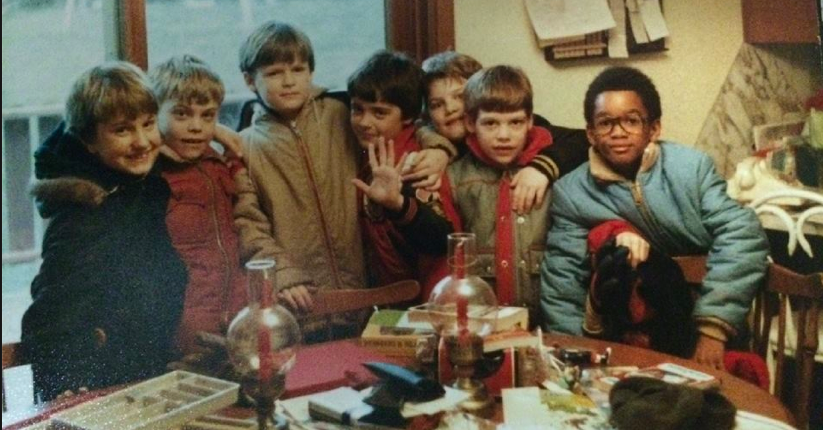
This interesting article “7 Biggest Risks of Raising Black Children in a White Environment” was published on Atlanta Black Star January 19. My hometown, Marshalltown, Iowa (population about 24,000 back then), was 95-plus percent white when I was born and raised (1970s, 1980s, early 1990s). The Des Moines schools I went to after my parents were divorced around 1987 were at least 60/40 white/black, give or take. I was shuffled back-and-forth between the two towns after 7th grade, thus I have a really unique perspective.
I’d like to address the 7 biggest risks with personal responses.
1. Children Can Be Harassed About Being Smart
I got straight A’s (E’s in elementary school) until 6th grade when my parents got divorced and I turned rebellious about school and life in general. I was moved to a different class in 1st grade – from Mrs. Speas (I think) to Mrs. Ketchum (I know) because I was too smart. Mrs. Lentz was supposed to be the “mean” 4th grade teacher. She had me skip a few assignments the other kids did because my Apple II-e computer game I programmed was long and needed to be finished.
My fifth grade teacher (Schroeder?) had my good friend Michelle and I skip regular class assignments, and work with/mentor the mentally challenged class. We helped them with reading and math, and even produced, wrote, and performed a play starring ourselves and said kids.
My seventh grade year (my first year in a 60/40 white/black school after my parents’ divorce) I was still a math whiz and my black male teacher (which I never had in my life to that point) was impressed at my ability. I was motivated to do well for him. In hindsight, however, I obviously should have been in the next math class up. The Marshalltown school would have moved me up; the Des Moines school did not.
I turned into a f*** up after 7th grade in all classes; skipped school a lot and did just enough to graduate.
2. Too White for Blacks, Too Black for Whites
This is an interesting one. I met my best friends for life Corey and Chris (my first black close non-family friends) when I moved schools in 7th grade. I was called a lot of names by black girls: nerd, “underweight” (that was one of my favs), “you talk like a whiteboy,” etc. When I was in elementary school, I used to get really uncomfortable when everyone would stare at me when slavery was taught in history classes. A few white girls would always want to touch my hair and call me “fuzzy wuzzy.” One girl poured a little water on my head in junior high because she wanted to see what black people’s hair did when it was wet. It all annoyed me, but they meant no harm. In fact the latter girl I had a major crush on.
Other than the aforementioned, I don’t remember much else pertaining to this subject.
3. They Don’t Learn Code Switching
There may be some merit to this. Code switching is explained:
“Black people raised in predominately white..communities never develop, or are slow to develop, what sociolinguists call alternate “registers,” specific varieties of informal/formal styles of speech that are racially and ethnically distinct from the white dominant group.”
I give my upbringing – both my parents and communities – credit for teaching me to be myself. My black friends in Des Moines would sometimes poke a little fun at me for listening to Roxette, Poison, or other “white music.” My white friends would be fascinated by the rap and R&B I’d have on my walkman.
I went through my “hip hop stage” from 8th to 11th grade, wearing fake gold chains, Flavor Flav clocks, and getting in a few fights to show my street toughness (got my ass beat a few times…still weighted less than 100 pounds in 9th grade). I even tried to “talk black” for one year (9th grade). But I realized I sounded ridiculous, stopped, and just kept speaking normally. Plus I learned girls seemed to be more interested in me being articulate. So I sacrificed stereotypical “blackness” (which I obviously didn’t do well anyway) for girls.
After high school I moved to Phoenix and auditioned for my first radio job. I didn’t get hired at the hip-hop FM frequency (The AZ Party Station) because “you sound too white.”
4. Black People Tend to Look Down on Them, Thus Affecting Their
Sense of Blackness
My hometown was as white as can be. But my dad and family were VERY black. My dad still partially had his southern accent (he was born in Arkansas) and my mom was the epitome of a black woman! Plus I’d be around my dad, uncles, and cousins a lot, as many of the few black families in my hometown were relatives. My sense of blackness was well-developed as a child.
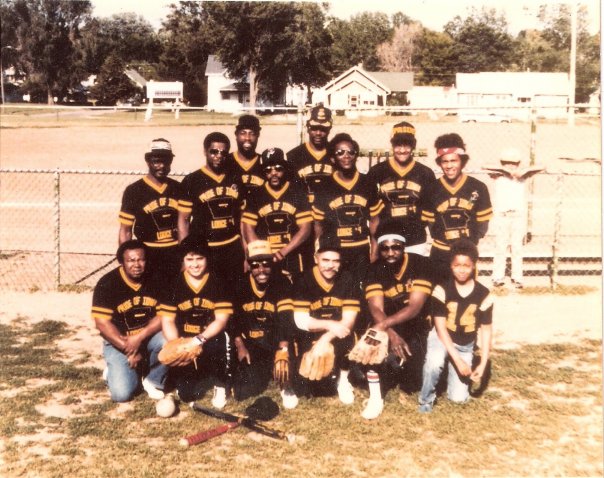
Again I got called a few names by black girls when I first moved to Des Moines, but don’t really remember the guys saying much, other than insulting my lack of basketball ability.
The guys never really mentioned much about me being “white sounding” or anything. First time I hung out at Corey’s house (7th grade), we were looking at Playboy magazines. I remember him saying “I didn’t think you’d be doing this” mostly because I spoke too “proper.” But after a while we all knew we were just kids. Even the white guy in our crew, Ross, had black people in his family.
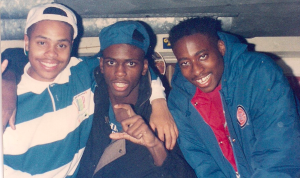
People who don’t know me today will pre-judge, but more power to them. I definitely have no problem with my “blackness” today. Its easy for me to strike up conversation with anyone because of my upbringing. I’ll jam Debbie Gibson or Trisha Yearwood in my van while driving; followed by Eazy-E and Outkast; and don’t care what people think.
I’ve successfully incorporated my true self into many office settings and people actually seem to appreciate the candor (of course tailored to whatever the overall company culture is). I like to believe black folks today in general appreciate my work, inter alia, exposing the police state and not wavering from truth even if its unpopular among the “mainstream.” But again its easy to live and get along with anyone when you don’t care what others think of you regardless of their race.
5. It Can Make Them Sick
This point focused on black kids raised by white families, and other black people subsequently “sensing” they are frauds. This doesn’t pertain to me.
6. Black Girls Especially Can Suffer Lowered Self-Esteem
Well, I’m not a girl so obviously this doesn’t pertain to me. But my little sister turned out ok. She’s highly successful in her career.
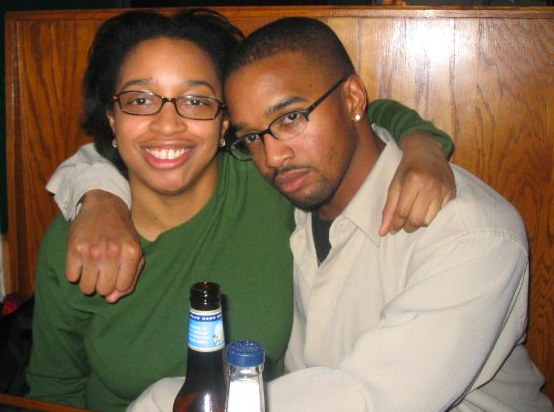
My big sister passed away years ago (love you Michelle). She definitely had no self-esteem issues, and was always willing to beat up any girl who hurt her little brother’s feelings! Also have to mention my big brother Claude Jr. He is married with kids, and has a great career.
7. Black Children Can Be Confused by the Many Racial Micro-Aggressions
I was always treated the exact same by teachers as all other students in my home town. In fact there were times I thought my teachers were picking on me when I was in elementary school because they made me do more work and harder work than the others. But it was because they were developing skills they believed I had.
There were, of course, a few stupid kids who would make a few stupid remarks and gestures. But a vast majority were laughing WITH and not at me. This kid Schipull, when I was in elementary school and 6th grade, would always “strut” a little bit to imitate my “trying to walk black.” It was actually really funny and he was a good friend. This kid Pfantz would call me “Jackson” and make silly remarks. But it was all in fun. I would get annoyed when girls would say I looked like “X black person on TV with glasses.” But I got over it.
When I got older and graduated from my home town school, a few guys were a little annoying. But if they said their “nigger” jokes, I’d say very cruel, very demeaning things back (re: talk about the fat kid being a virgin and girls not liking him; telling them they’re cursed because they burn and get cancer in natural sunlight, etc.).
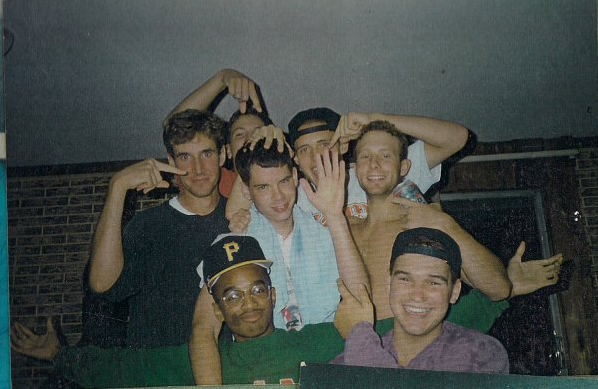
I remember one kid saying “I smell nigger” when I got close to him. I responded “yeah me too. Its coming from your mom’s pu**y.” He never said anything like that again. I still love him and all my boys from M’town, and in hindsight, some of the racial slurs prepared me for the real world outside of the fish bowl.
I grew up in a white town in the late 1970s and all 1980s – when Diff’rent Strokes, Facts of Life, Silver Spoons, Cosby Show, and other TV shows like them dominated the air waves. Black was presented in a positive way in all of them, unlike the coonery of today’s hip-hop, television, and movies. Plus black and white were always together in media and it was just normal. I believe that helped a lot. Mass media have the power to shape society however it chooses. Sadly I believe there are ulterior motives that aren’t positive in the monopolized media environment today. As someone whose worked in corporate radio and newspapers, I got to see some of this first-hand.
I’m happy how I grew up. My parents splitting up had far more of a negative effect on my life than the black/white dichotomy; as I think it would any child. Regardless the world and my hometown are very different in 2015. I highly doubt my old community could be replicated again, ever, anywhere.
Thanks for sharing this. I enjoy stories about the past.
Very interesting, thank you.
Right on, Brian. We have so many GEN X similarities (a few: sports journalism, talking proper lol). I grew up in what was called a Black city, Oakland, in the 70s, 80s, and 90s but it was really diverse while also “Black and Proud”. My 2nd cousin is Bobby Seale and when I was really little we went to Panther school for a while in the 1970s. But my parents were really into going to your “neighborhood school.” In elementary school in addition to my Black friends I had Chinese, Vietnamese, Cambodian (remember them? it’s like they don’t exist now), Chicana(o) (using that one on purpose) , and a few White friends I had to “check” from time to time. I totally agree with you regarding “integration” also, as Dr. King came to revise his views on integration prior to his assassination. The cited facts in your Covid Blog article speak for themselves. Thank you for all you’re doing. I appreciate your work.